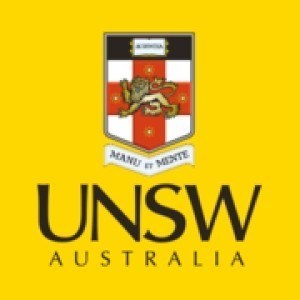Photos of university / #rmituniversity
The Bachelor of Applied Science in Chinese Herbal Medicine at the Royal Melbourne Institute of Technology (RMIT) offers a comprehensive and in-depth education in traditional Chinese medicine practices, with a particular focus on herbal medicine. This program is designed to prepare students for a professional career in the field of Chinese herbal medicine, combining theoretical knowledge with practical skills essential for effective practice. Throughout their studies, students explore the fundamental principles of Chinese medicine, including Yin and Yang theory, Qi, blood, and body organ functions, as well as the historical and cultural contexts of Chinese healing techniques. The curriculum emphasizes herbal medicine diagnosis, treatment planning, and the preparation of herbal remedies, alongside studies in anatomy, physiology, pathology, pharmacology, and Western medicine to foster a holistic understanding of health and disease.
Students will gain hands-on experience through clinical placements in RMIT’s dedicated Chinese herbal medicine clinics and partner facilities, where they will develop practical skills in patient assessment, case management, and safe herbal dispensing under supervision. The program also covers research methodologies and evidence-based practice, enabling graduates to critically evaluate clinical research and apply contemporary scientific insights to traditional practices. Graduates of this program are equipped to work in various settings, including private practice, community health organizations, and integrative healthcare clinics, offering culturally sensitive and effective herbal medicine treatments. The program’s multidisciplinary approach ensures that students are prepared to meet the evolving needs of healthcare consumers and adhere to professional standards and ethical guidelines. By completing this degree, students will emerge as qualified practitioners with the knowledge, practical skills, and confidence to contribute meaningfully to the health and well-being of their communities through the art and science of Chinese herbal medicine.
Chinese Medicine Board of Australia. The application can also be approved by the Australian Natural Therapists Association (ANTA) and the Federation of Chinese Medicine and Acupuncture Societies of Australia Inc (FCMA).
An Australian bachelor's degree in health sciences which fulfills the following requirements: cell biology (Bio-Science ) human physiology human body (full body) pathology immunology microbiology clinical clinic diagnosis in Western medicine.
The Bachelor of Applied Science in Chinese Herbal Medicine at the Royal Melbourne Institute of Technology (RMIT) offers a comprehensive approach to funding and financial support for prospective students. As an internationally recognized program, students have access to a variety of financial aid options designed to reduce the economic burden of higher education. Domestic students may be eligible for government-funded schemes such as the Higher Education Loan Program (HELP), which includes SA-HELP for student services and amenities charges. These loans allow students to defer some or all of their tuition fees, repaying them through the tax system once their income exceeds a certain threshold. Additionally, Commonwealth supported places may be available, offering reduced tuition fees subsidized by the government.
International students are required to pay full tuition fees upfront or arrange payment plans, with the possibility of scholarships or grants provided by RMIT to assist with tuition costs. RMIT also provides various scholarships based on academic merit, convergence with specific research interests in Chinese Medicine, or financial need. These scholarships often cover partial or full tuition fees and sometimes include living stipends or allowances. Students can also explore external funding sources such as private loans, educational loans from their home countries, or external scholarships offered by cultural and community organizations focused on Chinese medicine or traditional Chinese medicine practices.
Much of the financial planning involves understanding the costs associated with tuition, necessary equipment and materials, and living expenses. RMIT provides detailed cost breakdowns and financial planning guidance for students enrolled in health sciences and traditional medicine programs, including assumed costs for textbooks, supplies, and clinical placements. Students are encouraged to research eligibility and application procedures for financial aid early in their program planning process to maximize their options. Overall, the financing studies for the Applied Science - Chinese Herbal Medicine program are designed to support students through a range of government, institutional, and external funding opportunities, enabling them to pursue their educational goals without undue financial stress.
The Bachelor of Applied Science in Chinese Herbal Medicine at RMIT University is a comprehensive program designed to equip students with a strong foundation in traditional Chinese medicine, focusing on herbal medicine practices. The course curriculum integrates traditional Chinese healing philosophies with contemporary healthcare principles, preparing graduates for careers in complementary and alternative medicine. Students will learn about the identification, formulation, and application of herbal remedies, alongside modules on anatomy, physiology, and pathology to ensure a solid understanding of the human body and disease processes. The program emphasizes practical skills, including clinical practice, to develop competent practitioners capable of providing holistic health solutions. It also covers areas such as research methods and professional ethics, supporting students to contribute effectively to the health and well-being of their clients. Throughout their studies, students will engage with experienced practitioners and participate in clinical placements, gaining real-world experience. The program may require students to undertake internships or placements in approved clinics to enhance their practical competencies. Graduates are prepared to work in various settings such as traditional Chinese medicine clinics, integrative health practices, wellness centers, or even start their own practices. The qualification aligns with Australian health standards and professional accreditation requirements, enabling graduates to pursue registration or licensing where applicable. The course duration typically spans three years of full-time study, with part-time options available. The program is delivered through a combination of lectures, tutorials, workshops, and clinical training, ensuring a balanced and immersive learning experience. Upon completion, students receive a qualification that signifies advanced knowledge and skills in Chinese Herbal Medicine, opening pathways in health, wellness, and complementary medicine industries.







